Interview: Gene Simmons talks Destroyer, Alive, Monster and more
The God of Thunder delves into his KISStory
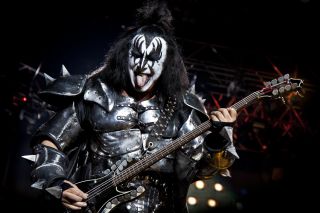
Interview: Gene Simmons talks Destroyer, Alive, Monster and more
“I’m deliriously happy,” retorts an unnervingly deadpan Gene Simmons around five seconds into our transatlantic chat.
Whether he really is in the midst of a good mood to end all good moods or not, the KISS founder has every right to be pretty darn pleased with life right about now. Fast approaching 40 years since they formed, the veteran classic rockers are enjoying a rich resurgence, with this week seeing the release of new album Monster, their second in three years, following the critically-acclaimed Sonic Boom.
As he geared up for the record’s release, Gene shared a few memories from some of the band’s career-defining efforts from down the years.
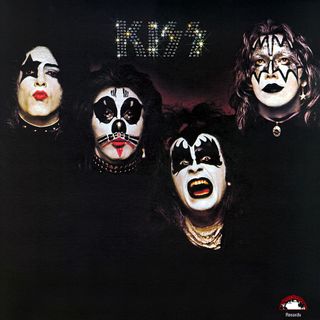
KISS (1974)
“For us it was Alice in Wonderland. Four knuckleheads off the streets of New York who didn’t have a clue what was going on or that they were about to scale the heights of Mount Olympus. Or that one would become the actual God of Thunder, you’re damn right I am.
“There was this spectacular innocence in the band, Ace and Peter were healthy, happy and couldn’t believe their luck. You find the Genie lamp, the Genie Simmons lamp of course, you rub it and out comes the Genie and says, ‘Whatever you’d like, you can have it.’ You say, ‘I like to be a rockstar with more fame and whatever than you could imagine.’ And you get it.
“We were hard task masters on ourselves. Everybody was equally important in the band and there was an us against the world feeling because everything we did, people laughed at. ‘You have a song called ‘Strutter’? What the f*** is that? What about love and broken hearts?’ We’d say, ‘F*** that!’ Black Diamond is about a prostitute, they’d say, ‘Sing something romantic’, that just isn’t cool.”
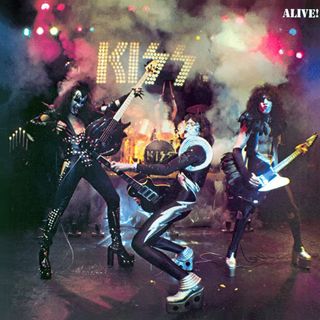
Alive (1975)
“KISS never had the patience to be in the studio. Lots of bands will stay in the studio until it feels right, we don’t have the patience for that. It’s wham, bam, thank you mam.
"We can’t wait to get on stage. We’d rather rehearse the songs and set up the mics like the Beatles did on Get Back and just get on with it.
“Alive was the last ditch effort of a band that didn’t break through on the first three records, they just did OK. Our record company was going out of business. In American football it’s called the Hail Mary pass, you have nothing to lose, so f*** it, go for the crazy throw.
"We decided to put out not just a live album, but a double album. If this was going to be our last record, let’s go out in a blaze of glory. In 1976 the platinum record became a certified award and Alive was the second platinum record and the first double platinum album of all time."
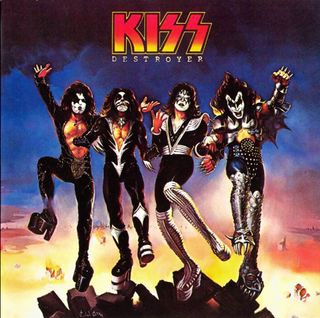
Destroyer (1976)
“We got big success - raw, mistakes, untuned guitars and all. Then we decided to do an arranged album with Bob Ezrin and do a ballad with a string quartet with kids singing on it.
"If you were a KISS fan I’d understand why you were angry. Yet, it all comes down to songs, either the songs connect with the DNA of a band, or they don’t.
“When it first came out some people were really happy with Detroit Rock City and some people were upset with Beth. They were released as the single, Detroit Rock City as the A-side, but the b-side, Beth, became the Number One record.
“Everything has been a gamble. When we first put on the make-up, that was a gamble. When we decided not to do la-di-dah music or wear tie dye t-shirts, not to sit on the stage with acoustic guitars and incense singing about birds and trees, it was all a gamble.”
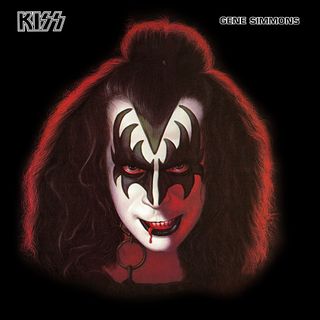
Gene Simmons (1978)
“A band should have the backbone of a wild animal and what they do is take risks, they pee on the ground and say, ‘This is my territory.’
"A band has to be like a wild animal and define for itself and everybody else what it is. You can’t be a slave to somebody else. We consistently kept doing risky moves.
“That album was a risk, but it was necessary. At that point, Ace and Peter, god love them, had succumbed to alcohol and drugs in a deep way. We had done a movie, KISS Meets the Phantom of the Park, and during the movie they would disappear and we’d have to have actors sit in for them in make-up, just pathetic behaviour.
“We had a meeting and Ace said he wanted to leave and have a solo career. We told him to have a solo career but stay in the band, have your cake and eat it too. ‘No, I’m going to have my own solo career and show you that I can sell ten million records.’
"Ace is now going through his third bankruptcy and poor Peter followed him. Our manager convinced everybody to go off and do our own solo records ands release them all at the same time. That appealed to everybody’s competitive nature. It was risky but necessary to keep the band together for a little while longer.”
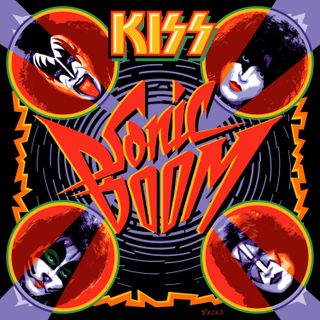
Sonic Boom (2009)
“Before we decided to go back into the studio, the industry was in turmoil. Kids decided they didn’t want to pay for records.
"KISS is not a charity, I work and I want to get paid for it. I don’t want to give away my stuff for free. We refused to do new music, why should we? I refuse to give away our hard work for nothing.
“When Best Buy and Walmart stepped up and said they wanted to distribute our albums and they’d pay us for them we said, ‘Ok, now is a good time.’ It just so happened that we had Tommy and Eric who had reinvigorated the band and made us realise we could do great things.”
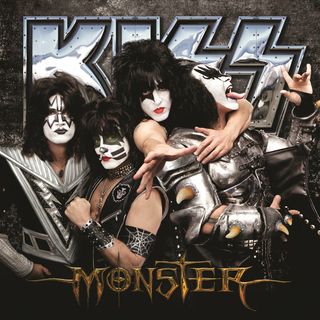
Monster (2012)
“What’s great [about Monster] is that we all have different favourites, all four of us. My favourite is Wall of Sound.
“Going back to the first few records, we were forced to work that way because there wasn’t time, we had to get together in hotel rooms and toss around songs and riffs. Paul in particular started to have the credit for being there more hours than anybody else and for having the focus of reminding everybody and himself that this is what we all decided to do, let’s do an uncompromising record. Let’s be who we are.
“When you’re eating bad food, you know that it’s bad for you. A year later when you’ve got those extra pounds, and heaven knows I’ve succumbed to that, you know what’s good for you, what’s good for you is to keep it raw and lean. But that’s harder to do, it’s self control.
"When you get in the studio it’s like being on a diet inside of a bakery. You’ve got all this technology and all the time in the world. You can bring in symphony orchestras and saxophones and glockenspiels, because you’re not in front of people.
"We would never dare bring a guy with a saxophone out on stage. It’s not who we are. The hardest thing to so was to go in the studio and say, ‘F*** all of that fancy French cooking, let’s just have meat and two veg.’”

Rich is a teacher, one time Rhythm staff writer and experienced freelance journalist who has interviewed countless revered musicians, engineers, producers and stars for the our world-leading music making portfolio, including such titles as Rhythm, Total Guitar, Guitarist, Guitar World, and MusicRadar. His victims include such luminaries as Ice T, Mark Guilani and Jamie Oliver (the drumming one).
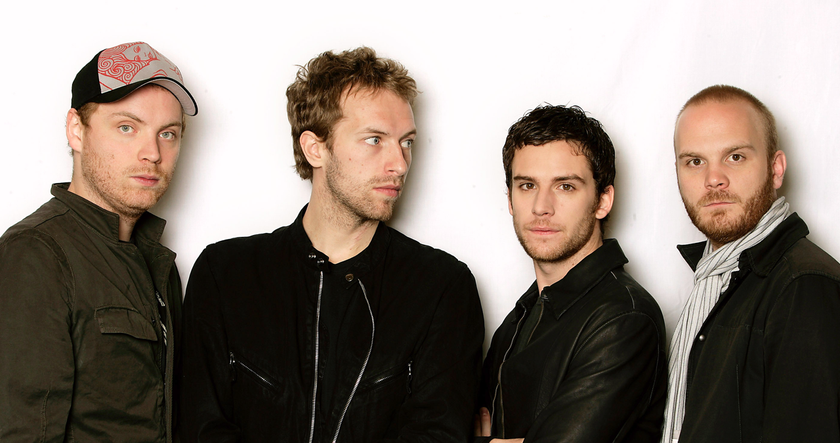
“If it wasn’t for that song, that would have been the end of the band”: How one track’s sudden gear-switch led Coldplay into their imperial phase

“He was like, ‘You’ve got it all wrong, man": Mumford & Sons reveal what Neil Young told them about the way they were approaching their live shows and album recordings

“If it wasn’t for that song, that would have been the end of the band”: How one track’s sudden gear-switch led Coldplay into their imperial phase

“He was like, ‘You’ve got it all wrong, man": Mumford & Sons reveal what Neil Young told them about the way they were approaching their live shows and album recordings








